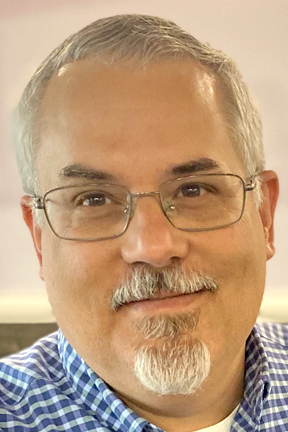Explore the Bible: June 23
Placed • Acts 3:12-26
By Roland L. McMillan

The focal passage for this lesson is part of a larger series of events in Acts 3 and 4. In Acts 3:1-10, a man with a birth defect was begging at a temple gate. Peter and John came to pray, met the man, and healed him in Jesus’ name. People were curious about what happened. In the focal passage, Peter used their curiosity as a starting point to talk about Jesus. In Acts 4 the authorities responded by arresting Peter and John. They were confronted after a night in jail, and Peter used it as another opportunity to talk about Jesus. The authorities struggled with how to respond and released Peter and John with threats to stop acting in Jesus’ name. In 4:23-31, the church reacted with Scripture and prayer. Empowered by the Spirit for mission, they would not stop presenting Jesus to the world around them.
In the focal passage, Peter took on a role that he sometimes played in Luke’s Gospel. Peter stepped out as the spokesman for the Jesus movement. People were curious about the healing. A crowd gathered at Solomon’s Colonnade, a large, covered walkway in the temple complex. Their curiosity was Peter’s opening. Speaking to the crowd, Peter’s focus was not the miracle itself. The miracle was a sign that pointed to a greater reality. The greater reality was, and is, Jesus. Peter’s message was based on Scripture and some of the basic facts about Jesus, very much like his message on Pentecost.
As he spoke that day, Peter announced a summary of the gospel message. Sometimes in church life, we say “gospel” when we really are talking about how to respond to the gospel. This passage has both the gospel and how to respond to the gospel. The gospel is the big-picture story about Jesus, God’s master plan for all creation for all time. Peter gave a thumbnail sketch of the gospel starting in verse 13 by identifying God as the God of Abraham, Isaac, and Jacob (cf. Exodus 3:15). In verse 23, Jesus is the prophet like Moses who was promised (Deuteronomy 18:15, 18, 19), the prophet expected in Deuteronomy 34:10-12. In verse 25, Jesus is the promised seed of Abraham, singular in the original language, from Genesis 12:7. (Paul made the same point in Galatians 3:16.) God promised to make Abraham’s descendants a great nation, but he had special plans for a particular descendant. All the way back in the days of Abraham, God was unfolding his plan for Jesus.
Jesus is the focus of the big-picture gospel, and Jesus was Peter’s focus on that day. In addition to being the promised seed of Abraham, Peter described Jesus in several ways. Jesus’ innocence is implied when Peter says Pilate wanted to release him (3:13). He is described as the “servant” of God, “the holy and righteous one,” the “Author of life,” and the “Messiah” (3:13-16, 20). When Jesus returns, everything will be restored (3:21). All the prophets, from Samuel forward, pointed ahead to Jesus (3:24). The idea of a suffering Messiah would have been shocking to the people in the crowd, but Peter pointed out that Old Testament prophets had foretold it (3:21). Luke does not give us a specific reference for this idea, but passages like Isaiah 53:5, Psalm 22:16, and many others demonstrate what Peter was saying.
Jesus is the focus of the gospel, and Jesus is the focus of how to respond to the gospel. Peter placed responsibility for the death of Jesus on the crowd: “you handed him over,” “you denied him,” “you denied” him again, “you asked for a murderer” referring to Barabbas, and “you killed” him (Acts 3:13-15). While Peter talked about the responsibility of the people then, in a sense everyone for all time also shares responsibility for the death of Jesus. Verse 19 calls on people to repent, to turn away from sin and to turn to God. Verse 26 restates the idea of turning from “your wicked ways” because of “his servant” Jesus. The plural here implies that Peter was not only calling on the crowd to turn away from rejecting Jesus, but also to turn away from sin in general.
So much has changed since that day in Solomon’s Colonnade, but nothing of supreme importance has changed. The gospel and the way to respond to the gospel are unchanged through the ages. Many people today are curious about Jesus, and their curiosity is our opportunity.
McMillan is pastor of Prentiss Church, Prentiss.